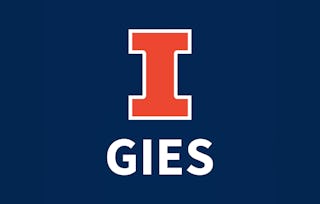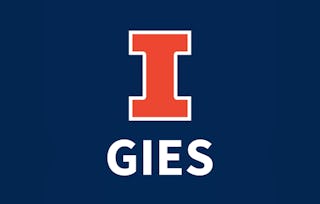This course provides an introduction to the U.S. federal income taxation of corporations and their shareholders. The course focuses on the relevant provisions of Subchapter C of the Internal Revenue Code, as well as related Treasury Regulations and judicial opinions, governing corporate formation, operations, distributions, and liquidation. Practical in-class study problems facilitate self-discovery of technical tax knowledge along with the development of a variety of professional skills and attitudes.

Taxation of Business Entities I: Corporations
Ends soon: Gain next-level skills with Coursera Plus for $199 (regularly $399). Save now.

Taxation of Business Entities I: Corporations
This course is part of U.S. Federal Taxation Specialization

Instructor: Michael P Donohoe, PhD, CPA
17,543 already enrolled
Included with
(250 reviews)
Recommended experience
What you'll learn
Evaluate the tax treatment of different organizational forms.
Compare and contrast the taxation of individuals and corporations.
Calculate the corporate income tax.
Determine the tax effects of incorporation, corporate distributions to shareholders, complete corporate liquidations, and corporate reorganizations.
Skills you'll gain
Details to know

Add to your LinkedIn profile
53 assignments
See how employees at top companies are mastering in-demand skills

Build your subject-matter expertise
- Learn new concepts from industry experts
- Gain a foundational understanding of a subject or tool
- Develop job-relevant skills with hands-on projects
- Earn a shareable career certificate

There are 8 modules in this course
In this module, you will become familiar with the course, your instructor, your classmates, and our learning environment. This orientation will also help you obtain the technical skills required to navigate and be successful in this course. Next, you will review the basics of tax law, which includes the origins of taxation, the three sources of tax law, the hierarchy of tax law, and judicial doctrines. Next, you will cover the fundamental features of the different organizational forms: sole proprietorship, partnership, corporation, and limited liability corporation. There will also be a discussion on strategic form choice. Finally, you will be introduced to entity classification for tax purposes.
What's included
16 videos7 readings5 assignments2 discussion prompts1 plugin
In this module, you will compare the tax formula for C corporations with the tax formula for individuals. Next, you will examine special tax deductions available only to corporations, such as the dividends received deduction, and the organizational expenditures deduction. You will learn how to calculate corporate income tax liability and compute the corporate Alternative Minimum Tax (AMT). This module will also discuss book-tax differences, and finally, it will discuss compliance procedures.
What's included
17 videos2 readings7 assignments
In this module, you will review the taxation of property transactions. You will be introduced to the Sunchaser Shakery which is a firm that you will apply concepts to. Then, you will examine the nonrecognition provisions in property-for-stock transactions and consider possible exceptions and conditions.
What's included
27 videos2 readings6 assignments
In this module, you will continue to explore property-for-stock transactions. Assumption of liabilities and transfer of services along with property will be introduced. Next, you will examine the effects of capital contributions on corporations, shareholders, and non-shareholders. You will also analyze the rules for debt and equity regarding capital structure. Finally, investor losses due to worthlessness of debt/equity investments and bad debts will be discussed.
What's included
26 videos2 readings7 assignments
In this module, you will learn about corporate non-liquidating distributions. First, earnings and profits (E&P) will be discussed, and you will learn how to calculate E&P. Next, you will analyze the treatment of cash distributions followed by property distributions. You will then cover the treatment of stock distributions. Finally, treatment of constructive dividends and qualified dividends will be explored.
What's included
25 videos2 readings8 assignments
In this module, you will explore redemptions and partial liquidations, which is when shareholders sell stock back to the issuing corporation in exchange for cash. You will learn about the five types of qualified redemptions, which are applied after you have considered stock attribution rules. Finally, you will analyze how these redemptions are treated by both the shareholders and the corporation.
What's included
23 videos2 readings6 assignments
In this module, you will be introduced to corporate liquidations. Some basic information on liquidations will be given, followed by a discussion on corporate tax treatment of complete liquidations. Also, the tax effects on shareholders will be analyzed. Finally, you will examine the tax effects on both the parent and subsidiary in parent-subsidiary liquidations.
What's included
27 videos2 readings6 assignments
In this module, you will explore corporate reorganizations. First, some background on the history of corporate restructuring will be given. Next, you will be introduced to the different types of tax-deferred reorganizations. Finally, you will learn analyze the tax consequences of these reorganizations.
What's included
16 videos4 readings8 assignments1 discussion prompt1 plugin
Earn a career certificate
Add this credential to your LinkedIn profile, resume, or CV. Share it on social media and in your performance review.
Build toward a degree
This course is part of the following degree program(s) offered by University of Illinois Urbana-Champaign. If you are admitted and enroll, your completed coursework may count toward your degree learning and your progress can transfer with you.¹
Instructor

Offered by
Explore more from Business Essentials
 Status: Free Trial
Status: Free TrialUniversity of Illinois Urbana-Champaign
 Status: Free Trial
Status: Free TrialUniversity of Illinois Urbana-Champaign
 Status: Free Trial
Status: Free TrialUniversity of Illinois Urbana-Champaign
 Status: Preview
Status: PreviewUniversity of Illinois Urbana-Champaign
Why people choose Coursera for their career




Learner reviews
250 reviews
- 5 stars
80.40%
- 4 stars
14%
- 3 stars
2.80%
- 2 stars
1.60%
- 1 star
1.20%
Showing 3 of 250
Reviewed on Oct 6, 2020
the course was interesting and come to know more information regarding taxation
Reviewed on May 26, 2022
Very professional! Clear and understandable information and instructor!
Reviewed on Dec 24, 2019
The instructor is good. The course material is exhaustive and all efforts are taken to cover all relevant material.

Open new doors with Coursera Plus
Unlimited access to 10,000+ world-class courses, hands-on projects, and job-ready certificate programs - all included in your subscription
Advance your career with an online degree
Earn a degree from world-class universities - 100% online
Join over 3,400 global companies that choose Coursera for Business
Upskill your employees to excel in the digital economy
Frequently asked questions
Once you enroll for a Certificate, you’ll have access to all videos, quizzes, and programming assignments (if applicable). If you choose to explore the course without purchasing, you may not be able to access certain assignments.
You will be eligible for a full refund until 2 weeks after your payment date. You cannot receive a refund once you’ve earned a Course Certificate, even if you complete the course within the 2-week refund period.
Yes! Coursera provides financial aid to learners who would like to complete a course but cannot afford the course fee. To apply for aid, select "Learn more and apply" in the Financial Aid section below the "Enroll" button. You'll be prompted to complete a simple application; no other paperwork is required.
More questions
Financial aid available,

